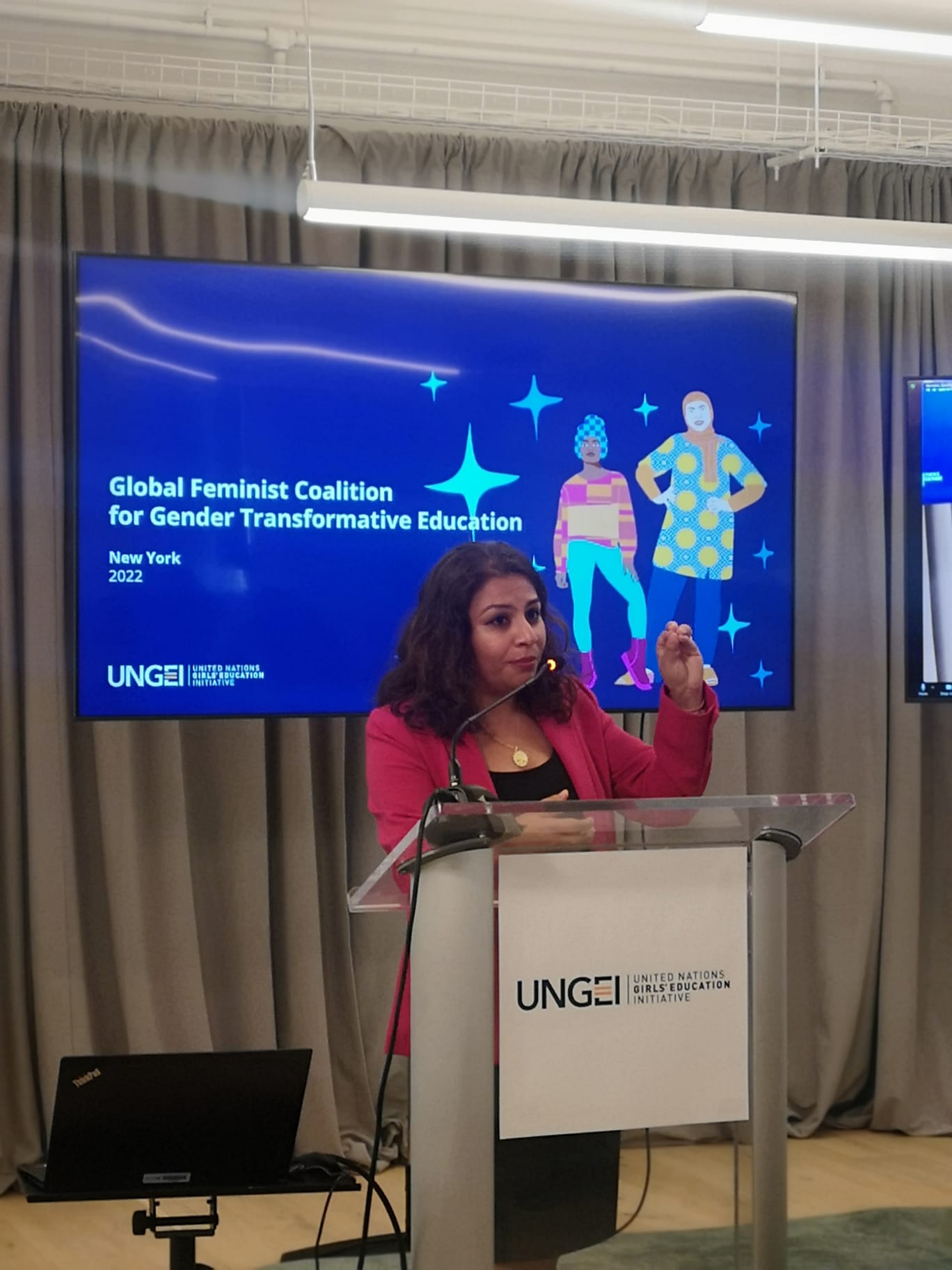”I used to be a mischievous boy who would bully others. But something happened that changed my perspective. I attended the gender-transformative sessions at my school. We talked about love, attraction and friendship. We also talked about the immense effort mothers put into the house and the absence of financial compensation. I couldn’t help but wonder why there was so much unfairness in the world. Now I have a stronger relationship with my mother, sister, teachers and friends. I’ve been telling all my friends about what I learned. I used to witness cases of eve-teasing1, and they didn’t bother me at all. But after the programme these deeply disturbed me. Our facilitators told us that emotionally weak people tend to hide their fears by bullying others. If those boys had gone through the same programme as me, they might have behaved differently”.
- Sunil, 15-year male student from Osmanabad, Maharashtra, India.
Sunil (*name changed to protect identity) is one of the thousands of children who participated in the programme addressing gender stereotypes and harmful gender norms, implemented since 2022 by UNICEF India and the UN Girls’ Education Initiative (UNGEI) in collaboration with the Maharashtra state government. This programme uses play-based curricula for primary and secondary students to recognize and address limiting and negative stereotypes about what an individual can be and do based on their gender. We implement this programme in Bangladesh, India, Niger and Pakistan, where we work with the whole of the school community: Learners, teachers, school staff, communities and parents.
What has changed?
In only six months, we observed significant shifts in children’s perceptions and attitudes about gender stereotypes, especially relating to domestic and household roles, from baseline to the endline survey. For example:


Teachers’ perspectives also changed. By the end of the programme, baseline and endline surveys showed that100% of women and 81% of men teachers disagreed with the statement “a woman’s most important role is to take care of her home and cook”, compared to 88% and 71% at the beginning.

But gender biases can also be persistent.
We measured a 24-percentage point increase among female teachers, but only 5-percentage point increase among male teachers disagreeing with the statement that “a woman should not be employed if her husband is financially supporting her.” We still have some way to go to shift deeply entrenched gender stereotypes among men, particularly those pertaining to economic and family power dynamics.
“During our school’s annual function, a girl and a boy took a selfie together, with the boy placing his hand on the girl’s shoulder. Some of the teachers were upset by this, especially with the girl. One of the teachers even resorted to physically punishing the girl and calling the girl’s parents out of concern that they might otherwise question the school. After attending these workshops and watching the insightful films, we realized that this kind of behaviour was normal for this age and harmless. Now, I understand that our own biases lead us to impose restrictions on girls. We unintentionally limit their freedom due to unfounded fears. No matter how intelligent, bold, wealthy, or smart a woman may be, society often creates obstacles to her growth and independence. I believe such differences shouldn’t exist and a woman should feel free and secure to pursue her dreams”. Shruti, 33-year-old female teacher.
How have we done this?
There is a misconception that a lot of time and resources are needed for perceptions to change. This is not the case. Here’s what we did:
- We developed and used age-appropriate storybooks for grades 3 to 5. Pratham Books’ Story Weaver ‘Open Books, Open Doors, Open Minds: Gender Transformation through Storybooks Programme’ was implemented in the classroom in 50 schools. The programme was then followed by games and activities to drive home the message.
- We introduced interactive play-based modules, group discussions, case stories, and role plays for grades 6 to 10. This included CORO India’s fictional documentary series ‘Meena Raju Manch’ and the Janeevesah module by Swayam Shikshan Prayog (SSP) and Men Against Violence and Abuse (MAVA).
- We organized film festival workshops and discussions for teachers, and sensitization sessions for school management committees.
- With the communities, we held gender fairs with games, village processions, and motivational activities.
Evidence tells us that it is possible to shift knowledge, attitudes and behaviors regarding gender stereotypes through education programmes. It is possible even in a short timeframe and with limited funding. Evidence also shows that although changes in knowledge and attitudes can be achieved quickly, changes in norms and behaviours take longer, and need more effort, investment and evidence.
We have seen that with the right interventions at the right age, ending gender stereotypes is possible.
Get involved!
Join our Real Brave Change campaign to power a future free of gender stereotypes for all.
We thank the Zilla Parishad of Osmanabad and the District Institute for Education & Training, Osmanabad, Maharashtra and partners Pratham Books, CORO India, SSP and MAVA and for their efforts and fruitful partnership.
1Commonly used euphemism in India for sexual harassment



 English
English العربية
العربية Български
Български Hrvatski
Hrvatski Čeština
Čeština Dansk
Dansk Nederlands
Nederlands Suomi
Suomi Français
Français Deutsch
Deutsch Ελληνικά
Ελληνικά हिन्दी
हिन्दी Italiano
Italiano Română
Română Русский
Русский Español
Español Maltese
Maltese Zulu
Zulu አማርኛ
አማርኛ